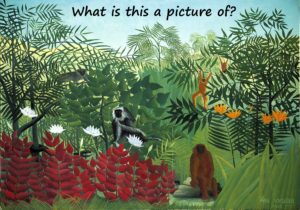“plant blindness” can have disastrous consequences

A phenomenon called “plant blindness” means we tend to underappreciate the flora around us. That can have disastrous consequences not only for the environment, but human health.What is the last animal you saw? Can you remember its colour, size and shape? Could you easily distinguish it from other animals?
If your mental images of animals are sharper than those of plants, you’re not alone. Children recognise that animals are living creatures before they can tell that plants are also alive. Tests of recall also show that study participants remember pictures of animals better than images of plants. For instance, one US study tested “attentional blink” – the ability to notice one of two rapid-fire images – using pictures of plants, animals and unrelated objects. This showed that participants more accurately detected images of animals than plants.
This tendency is so widespread that Elisabeth Schussler and James Wandersee, a pair of US botanists and biology educators, coined a term for it in 1998: “plant blindness”. They described it as “the inability to see or notice the plants in one’s own environment”.Plant blindness, not surprisingly, results in an under-appreciation of plants – and in a limited interest in plant conservation. Plant biology courses around the world are shutting down at a dizzying rate and public funding for plant science is drying up. While studies haven’t been done on the extent of plant blindness and its change over time, increased urbanisation and time spent with devices means that “nature deficit disorder” (the harm caused to humans by being alienated from nature) is on the rise. And with less exposure to plants comes greater plant blindness. As Schussler has explained, “humans can only recognise (visually) what they already know”.
Plant conservation matters for environmental health. But it also matters, ultimately, for human health.This is problematic. Plant conservation matters for environmental health. But it also matters, ultimately, for human health.Plant research is critical to many scientific breakthroughs, from hardier food crops to more effective medicines. More than 28,000 plant species are used medicinally, including plant-derived anti-cancer drugs and blood thinners.
Experimenting on plants also offers an ethical advantage over some forms of animal testing: versatile techniques in areas like genome editing can be refined using plants, which are easy and inexpensive to breed and control. For instance, the genome sequencing of Arabidopsis, a flowering plant important in biology research, was a landmark not only in plant genetics, but in genome sequencing in general.





